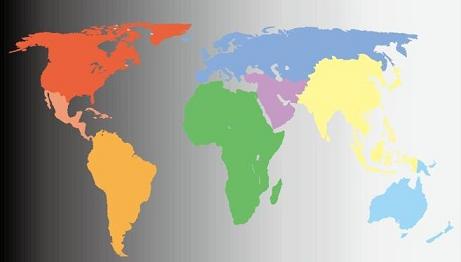Organizational structure gives the framework or lines of communication, authority, responsibility and accountability. Organizational structure specifies the firm’s reporting relationships, procedures, controls and authority and decision processes. It is a critical component of effective strategy implementation process. Organizational structure provides for specialization and interfaces among specializations for collaborative synergism and competitive dynamism. For Multinational Enterprises(MNEs) deciding the organization structure is very important because it cannot be the same for all units and at the same time cannot be just one design for all. Whatever the design, it must be organic enough to adapt to situations. The structure must have stability to facilitate day to day activities to go on consistently and flexibility to facilitate taking advantage of opportunities that environment throws up.… Read the rest
International Business Basics
Managing Political Risk in International Business
Political environment could involve a risk to businesses, domestic and foreign. Such risk is called political risk. Political risk is that perception by the businesses that their interests will get deteriorated when certain political upheaval happens. Political risk can occur in both democracies as well as in the totalitarian set ups as well.
Political Risks are of different types. There are micro and macro political risks. Micro political risk is the one that affects a particular firm or class of firms. Usually firms owned by one class of businessmen, say, the foreigners from certain country, a particular business family or region/state.… Read the rest
International Trade Theory of Country Size and Technology Gap
Country size has some definite relation to international trade as to what is traded, how much is traded and so on. The classical trade theories do not go into country-by-country differences in size to deal with the lines of specialization. When a small and big country are involved, the small country may be pushed into specialization, but not the big one for all its need for the other product can’t be produced by the other small country, nor that small country take all export surplus of the big nation resulting from specialization. Thus a nexus exists between global trade and country size.… Read the rest
Political Environment of International Business
Political factors constitute an important environment factor in International Business. Actually politics and economics are inter-related as one influences the other. That was the reason for early writers of Economics preferred to caption their work as Political Economy. Political system, political parties in power, political parties in the opposition, political maturity of the parties, number of political parties, political awareness of people, political stability and the like have great impact on the business environment in a country. The economic policies pursued by a Government are to a great extent the by-product of political environment that impacts businesses very often.
Basic Political Ideologies
Political ideology refers to, ‘the body of ideas, theories, aims and means to execute the ideas, adapt the theories and fulfill the aims that constitute a sociopolitical programme for action’.… Read the rest
Control in Multinational Enterprises (MNEs)
There are various methods of classification of management control in Multinational Enterprises (MNEs). By levels of control here it is meant whether the parent / corporate level managers or subsidiary/country-level managers are involved. The former might be called higher level and the later lower level control. Depending on the sphere of focus we have two types of control called Strategic control and Operational control. In the MNE’s context, strategic control is the responsibility of parent and operational control is the preserve of the subsidiary.
Another way puts ‘management control, tactical control and transactional control’ as the 3 levels of control respectively carried out by the corporate top management, collectively by corporate & subsidiary management and subsidiary management in the case of MNEs.… Read the rest
New Trade Theory of International Trade
New Trade Theory of International Trade takes a different approach from the Ricardian and the Heckscher-Ohlin models on why countries engage in international trade. Both Ricardo and Heckscher assumed constant returns to scale where to them if all factors of production are doubled then output will also double. But a firm or industry may have increasing returns to scale or economies of scale in way that when all factors of production are doubled, output more than doubles which will necessitate a bigger market and thus forcing firms to engage in international trade where there is a larger market. The New Trade Theorist noted that the bigger the size of a firm or industry the more the efficiency of its operations in that the the cost per unit of output falls as a firm or industry increases output.… Read the rest

